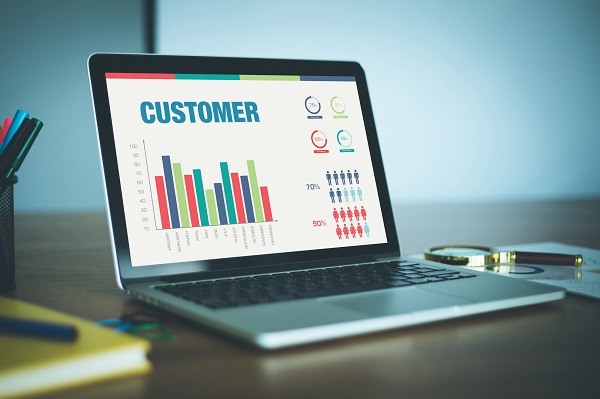
07 Mar Why Data is So Important in Sales?
For a long time, sales and data have gone hand in hand with each other. You simply can’t excel in sales without data and you can’t have accurate, substantial data without making successful sales. While sales must start off without data, over time one should be improving the conversion rate of one’s sales by gathering and analyzing previous sales data. Even if your company is brand-spanking new and you’re about to start your first sales campaign, one can do some research about successful sales techniques used by other companies in your industry or niche, your desired target customers, and tips and tricks from a plethora of sales blogs, forums, networking events and websites.
Why Data?
If you’re a new salesperson, you’re likely biting at the reins to get started making those phone calls, locking in deals and bringing in the commissions. You don’t understand the necessity of data in successful selling. As far as you’re concerned, the more calls you make, emails you send and ads posted on the website, the greater your chances you’ll have to get conversions. Unfortunately, many new and experienced salespeople have this mindset. However, the key to successful selling isn’t working harder, but smarter and more efficient. This is where the collection and analyzing of sales data comes in.
Data Can Segment Customers and Their Data
Data can help you learn much valuable information about your prospective customers including age, gender, marital status, occupation, location, shopping habits, where they fall in the company’s digital marketing funnel and more. The information data arms you with enables you to segment customers in a way that you can easily identify and go after those customers that make for the best sales qualified leads and are most likely to convert into sales. Additionally, data can also help businesses calculate each customer’s lifetime value, allowing salespeople to focus on the most promising leads.
This segmenting customers into those that are most profitable to your business can’t be done by blindly making mass calls or emails.
Data Allows Companies to Adjust to Customers’ Needs
In sales, customer retention is just as important as attracting new customers. Retention, however, is often a much harder feat. If one’s only follow-up communication with a previous customer is over the phone or email, it can be hard for the salesperson to know the customer’s current needs and are therefore, unable to market a product or service to meet the new needs and wants.
Data on the other hand can help assess a customer’s needs and enable the company to better anticipate customer problems and offer solutions.
Data Can Indicate What is or Isn’t Possible
There isn’t anything wrong with dreaming big. In fact, the business world encourages the setting of high goals and expectations, only if they are realistic and feasible. If you have lofty sales goals, sales data can help give you accurate insights as to what can and what can be achievable. Data provides baselines from which to start at which is important when coming up with realistic goals. For instance, you can’t set a goal of making 100 sales in a quarter when data has shown that you only made an average of 50 sales per quarter the last three years.
Data Can Give Context to Prevent Hasty Decisions and Errors
Sales data goes beyond simply conveying numbers. It communicates information. However, data can be easily manipulated and misrepresented. Salespeople can easily cherry-pick favorable data while ignoring negative data. People can also become too involved in the details of the data that they miss seeing the bigger picture of a success or failure.
Whether it’s one-sided, positive information or the devil in the details, both ways of misunderstanding and misrepresenting data can lead to hasty decisions and mistakes.
When using data, it’s important to look at the whole picture, including the good and the bad. It is also highly important to have a broad, top level view of the data. By doing these two things, you’ll find that the data gives great context to why one’s sales strategy is or isn’t working and whether these outcomes are the result of a temporary glitch or outside force or t will be something long-term and possibly something to quickly adjust.
Data is more important to sales than what many recognize. Data can greatly improve the flow and conversions at every step of a business’ digital marketing funnel from sparking the interest of a possible customer to a customer converting with a purchase of a product or service. Sure, one can try executing a sales strategy that isn’t based by data. However, it won’t be nearly as effective or efficient in bringing conversions. Data can do many things in helping one’s sales strategy from identifying a sales qualified lead, to helping the company adjust to the changing needs of customers in order to retain them for future purchases.
There are multiple sales analytics data tools out there. At Aktify, we help business clients attract highly sales qualified leads, satisfy the needs of current, returning customers and even revive “dead” leads through the use of a highly skilled and dedicated sales team that tracks leads through the sales funnel and presents unique, stage-specific sales techniques to them that has been proven to move leads onto the next sales funnel stage. Whether you have a sales data analytics system that isn’t giving you the thorough information you need to enhance your sales or you don’t have any kind of data collection and analysis software set up, Aktify’s sales data analysis system can help.
If you want to better the effectiveness of your sales in a way that you work smarter, not harder, contact us at Aktify today to learn more about our sales products and services.
Sorry, the comment form is closed at this time.